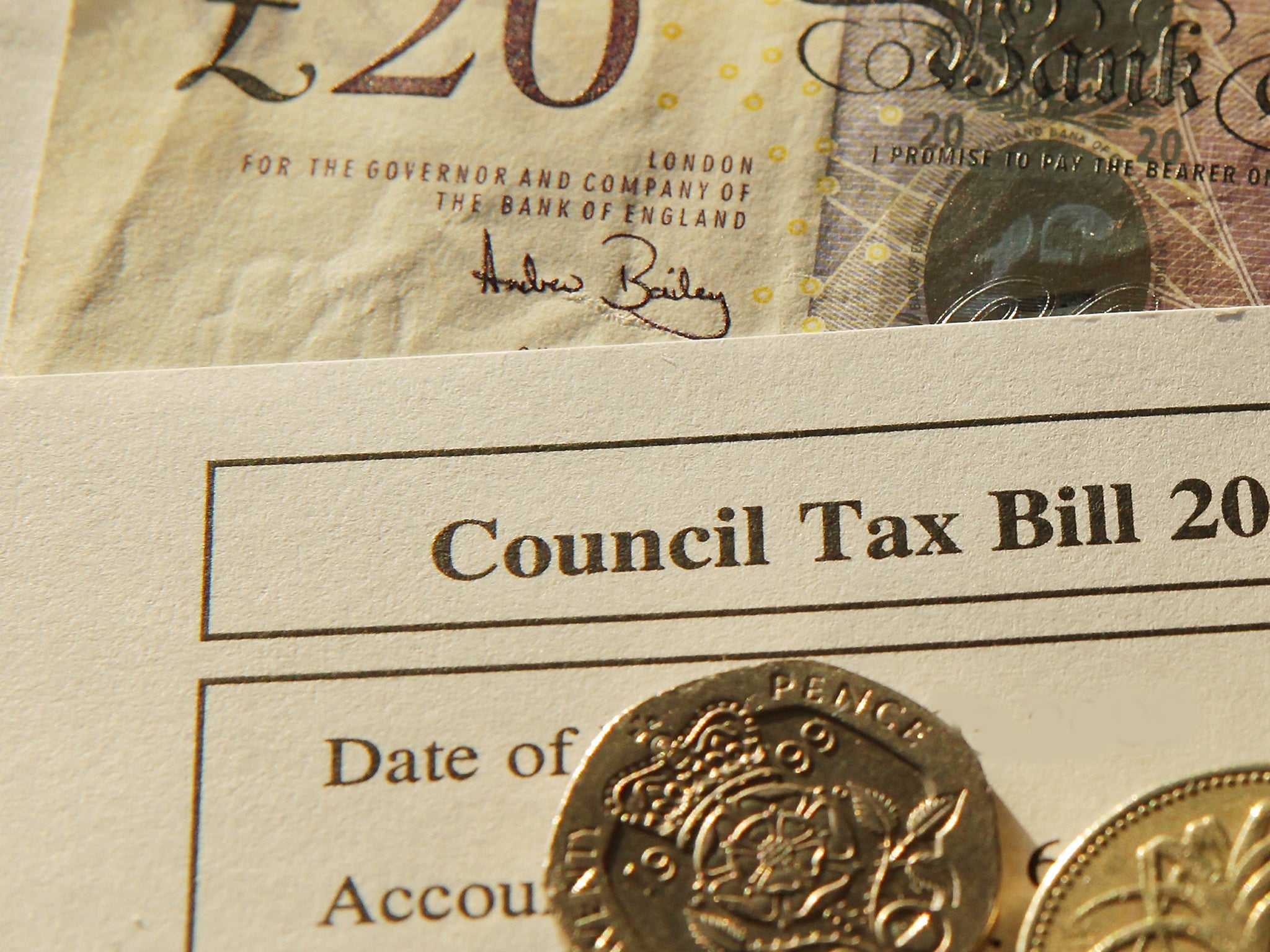Almost half of councils set to ignore council tax freeze
Town halls revolt as 40% look to shun Eric Pickles' plan to hold rates

Your support helps us to tell the story
This election is still a dead heat, according to most polls. In a fight with such wafer-thin margins, we need reporters on the ground talking to the people Trump and Harris are courting. Your support allows us to keep sending journalists to the story.
The Independent is trusted by 27 million Americans from across the entire political spectrum every month. Unlike many other quality news outlets, we choose not to lock you out of our reporting and analysis with paywalls. But quality journalism must still be paid for.
Help us keep bring these critical stories to light. Your support makes all the difference.
Eric Pickles faces a significant revolt by town halls over council tax with more than 40 per cent set to shun his plans for a freeze and raise local bills, a survey showed.
The Communities Secretary has promised local authorities in England the cash equivalent of a 1 per cent rise in return for holding rates the same - the third such annual initiative.
Around 85 per cent took up the offer last year but that number is set to plunge dramatically, according to figures compiled by the Chartered Institute of Public Finance and Accountancy (Cipfa).
With just over half of billing authorities already confirming their intentions, it found 41 per cent intended to forego the grant and push up the tax for 2013/14.
Among the authorities who have already declared they will not impose a freeze, the average rise is expected to be 1.1 per cent - leading to an average expected rise across England of 0.8 per cent.
That is almost three times last year's 0.3 per cent increase and means an extra £11.74 on average for a Band D property but Mr Pickles insisted it was still "effectively frozen".
There are significant regional variations with an average 1.2 per cent rise due across Yorkshire and Humber - adding £16.30 to a Band D property bill - while in Greater London, where bills went down on average last year, it is just 0.1 per cent.
Town halls fear that unless they impose modest rises this year, they will be forced into more dramatic hikes in future when there is no Whitehall cash to soften the blow.
Cipfa's director of policy Ian Carruthers said the squeezed budgets meant councils had to "strike an increasingly difficult balance" between tax rises and service cuts.
"Councillors must take council tax decisions based on local priorities," he said.
"As the pressures from this period of unprecedented austerity intensify, all councils are having to strike an increasingly difficult balance between protecting hard-pressed taxpayers and maintaining local services.
"The imminent changes to local authority funding systems are bringing added uncertainty to councils' financial management and making it more difficult than ever for councillors to take the medium and longer term decisions required."
Mr Pickles said: "Council tax more than doubled under Labour.
"But this Government has worked to freeze council tax for three years, helping hard-working families and pensioners with their cost of living.
"This survey confirms that council tax will effectively be frozen again this year, with an average change across England of just a mere 0.8 per cent. This is a tax cut in real terms.
"Ed Miliband's Labour Party opposes freezing council tax, which shows how Labour remain addicted to higher taxes, and are on the side of bureaucracy, wasteful spending and not the taxpayer."
Mr Pickles has ordered any council which seeks a rise of 2 per cent or more to put it to a local referendum and has told those considering rises just short of that they are "cheating" taxpayers.
A Local Government Association spokesman said: "This has been a tricky decision for councils.
"Collectively local authorities are facing a 33 per cent cut in funding from government at the same time as the cost of providing services like adult social care is climbing through the roof.
"The council tax grant from government is very small when set against those pressures and it lasts just two years with no certainty beyond that.
"Ultimately councils have to take a long-term view. Some have clearly decided that increasing council tax is one way of meeting current costs and alleviating pressure in the longer term.
"Councils are fully accountable to their electorates for these decisions."
PA
Subscribe to Independent Premium to bookmark this article
Want to bookmark your favourite articles and stories to read or reference later? Start your Independent Premium subscription today.
Join our commenting forum
Join thought-provoking conversations, follow other Independent readers and see their replies
Comments